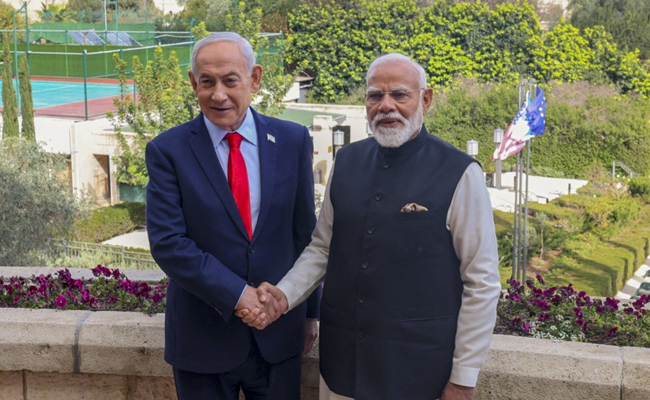Cape Town, Feb 26: Beth Mooney struck a fine unbeaten half-century to guide five-time champions and title holders Australia to 156 for 6 against hosts South Africa in the final of the ICC Women's T20 World Cup here on Sunday.
Mooney remained unbeaten on 74 off 53 balls during which she struck nine boundaries and one hit over the fence.
Electing to bat, Australia lost Alyssa Healy (18) early, caught at covers by Nadine De Klerk off the bowling of Marizanne Kapp (2/35) in the fifth over.
Then Ashleigh Gardner (29 off 21) joined hands with Mooney and the pair's 46 runs for the second wicket stabilised the innings before the former was brilliantly caught at long-off by South Africa skipper Sune Luus off the bowling of left-arm spinner Chloe-Lesleigh Tryon.
But Mooney went about her business in blistering fashion and dispatched the bad deliveries to the fence to keep the scoreboard ticking.
Grace Harris tried to up the scoring rate but was cleaned up by left-arm spinner Nonkululeko Mlaba in the 14th over as the batter went for a wild heave over the square-leg boundary.
Next in, skipper Meg Lanning showed intent from the word go, scoring her first runs from a boundary through the point region before being brilliantly caught by Tyron at deep backward square leg off the bowling of Kapp.
Mooney, however, remained unperturbed as she kept consolidating the Australia innings, picking up boundaries with ease.
Even as Mooney held one end up, wickets kept tumbling at the other side as Australia tried to find boundaries towards the end of the innings.
South Africa brilliantly pulled things back towards the end of the innings by picking up wickets at regular intervals with Mooney remaining stranded at the other end.
South African pacer Shabnim Ismail (2/26) had a big role to play in restricting Australia to an achievable total, claiming the wickets of Ellyse Perry and Georgia Wareham off consecutive balls. She was on a rare hat-trick in the final over but Tahlia McGrath denied Ismail the feat, managing a single off the last delivery of the innings.
Let the Truth be known. If you read VB and like VB, please be a VB Supporter and Help us deliver the Truth to one and all.
Aligarh/Noid (PTI): Indian cricketer Rinku Singh's father, Khanchand Singh, passed away at a hospital in Greater Noida early Friday following a prolonged illness, family sources said.
Dr. Sunil Kumar, spokesperson of Yatharth Hospital in Greater Noida, where the cricketer's father was admitted, said Khanchand Singh was battling liver cancer.
"His condition had deteriorated significantly in recent days, following which he had been admitted to the hospital on February 21. He was placed on ventilator support and breathed his last early this morning," Kumar said.
Due to his father's critical condition, Rinku had to return home midway through the T20 World Cup. However, he rejoined the Indian team ahead of the match against Zimbabwe on February 26. He had also recently visited Noida to meet his father.
Rinku's former coach, Masood Amini, told PTI Videos in Aligarh that Khanchand Singh had been battling advanced-stage liver cancer and was in the terminal phase of the illness.
"He had been unwell for quite some time. He was suffering from liver cancer. For the past three to four days, he was on ventilator support," Amini said.
Amini said Rinku's father worked tirelessly to support his family and educate his children.
"He started out working as a gas cylinder delivery man and worked very hard to raise his family," he said.
The 28-year-old cricketer, a resident of Aligarh district in Uttar Pradesh, credits much of his success to his father. Khanchand Singh, who worked in gas cylinder distribution in Aligarh, supported his son's dream of becoming a cricketer despitefacing financial hardships.
The family said Khanchand Singh's last rites will be performed in Aligarh, and Rinku will attend the funeral.





